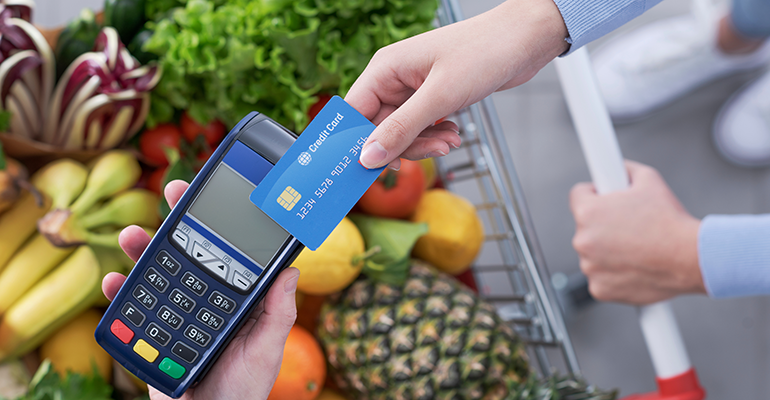News
Food sector pushes unhealthy choices on consumers, new report shows
7 Jul 2023
Regulators and retailers must take action to prevent European consumers from being led to make unhealthy food choices, experts say.
The food that consumers purchase, prepare, and eat is driven largely by food sector decisions as opposed to individual choice, the findings of a recent report “The illusion of choice - Why someone already decided what you will eat for lunch” co-authored by the European Consumer Organisation (BEUC), a non-profit organisation comprised of 45 independent national consumer organisations, European Public Health Alliance (EPHA), and Eurogroup for Animals show.

The modern food industry supports “unfavourable” food environments, pushing consumers to consume foods that contribute to largely unhealthy and unsustainable diets via a range of practices such as pricing, marketing, and availability, says the report.
To make healthy and sustainable food more accessible, desirable, and affordable, the European Commission (EC) is proposing various measures and interventions at the EU and national level under the legislative Framework for Sustainable Food Systems (FSFS), yet more must be done, experts say.
Current food environments promote unhealthy eating
Despite the common conception that consumers are in control of their food purchasing decisions, most food choices are heavily shaped by the “food environments” that they navigate.
Defined by the high-level panel of experts on food security and nutrition of the United Nations’ Committee on World Food Security, food environments are the “physical, economic, political and socio-cultural context in which consumers engage with the food system to make their decisions about acquiring, preparing and consuming food”.
A complex range of factors including marketing and advertising; food availability and price; and promotional offers influence consumers choices, often without their knowledge or implicit consent.
From the discounts offered to them in stores to the adverts they see on social media, current food environments fail at promoting and ensuring the healthiest and most sustainable option is the most accessible for consumers.
“Our current food environments are designed to maximise nutritionally poor foods, leading to a long list of non-communicable diseases with an increasing incidence and burden to society,” said Dr Milka Sokolović, director general of the EPHA.
“Policymakers bear responsibility for reversing this situation in which our food environments make us ill. They must support people in making the healthy and sustainable food choices by making them the default option.”
Via the “Put change on the menu” project, Eurogroup for Animals, BEUC, and the EPHA have formed a coalition to bring food environments into public debate and promote those that support healthy sustainable diets with ‘less and better’ animal products.
The EU fails at supporting sustainable healthy diets
According to the Food & Agriculture Organization (FAO) and the World Health Organization (WHO), sustainable healthy diets “have low environmental pressure and impact, are accessible, affordable, safe and equitable and are culturally acceptable”. They are based on a variety of minimally processed foods spanning food groups and limit highly processed and animal source foods.
 © AdobeStock/stokkete
© AdobeStock/stokkete
Few consumers in the EU lead sustainable healthy diets. Currently, only 12% of EU consumers eat the recommended amount of fruit and vegetables per day, whilst consumption of animal source foods exceeds intake levels by two to four times, according to data from the EC and Eurostat.
“Why does it often cost more to buy fruit than a bag of unhealthy snacks? Eating healthily and sustainably should become the regular choice, not the luxury one. Supermarkets must stop offering deals that push us towards food and drink products we need to consume less of, and instead target price promotions to support healthier and greener diets. Governments too need to step in to ensure all consumers can afford buying food that is good for their health and the planet,” said Monique Goyens, director general of BEUC.
Joint action is required from retailers and regulators
Food environments must transform to improve access to healthy and sustainable food for European consumers, the report says. From marketing practices to food characteristics and price signals, consumers should be encouraged to make food purchasing decisions that benefit their health and the health of planet, rather than damaging it.
According to the report, retailers should be mandated to boost the availability and affordability of healthy and sustainable food via price, promotion, and marketing strategies. Where regulators are concerned, legislation, fiscal measures and subsidies should be introduced to make such food more accessible and desirable to consumers.
Practical examples include setting targets for increasing the proportion of supermarket sales from healthy and sustainable food at the national level, regulating unhealthy food marketing to children, and requiring food providers to provide calorie information and healthy and sustainable options.
Related news

UK Government overhauls childhood obesity strategy
21 Nov 2025
The UK Government has announced a new package of measures designed to reverse the nation’s childhood obesity epidemic following the release of statistics revealing the scale of the crisis.
Read more
Nitrites: Pressure grows on UK to follow EU’s lead
20 Nov 2025
Pressure is growing on the UK to follow the EU’s lead after the bloc revised its regulations on the permitted levels of nitrites and nitrates in cured meats.
Read more
How younger consumers are redefining ingredient choices and rejecting brand loyalty
18 Nov 2025
Gen Z and millennial consumers’ preferences for transparency, functionality, and purpose are “redefining the very nature of consumption itself”, says SPINS.
Read more
Soy story: WWF scores UK supermarkets on sustainability efforts
12 Nov 2025
WWF has published its latest “Soy Scorecard”, ranking UK supermarkets’ efforts to combat deforestation and land conversion in their soy supply chains.
Read more
New UPF standard hoped to offer consumers ‘coherence and clarity’
10 Nov 2025
Ingredients companies are being urged to enter “a new era of partnership and innovation” following the launch of the industry’s first non-UPF verification scheme.
Read more
Could plant-based protection replace plastic packaging?
29 Oct 2025
Swedish foodtech company Saveggy has launched an additive-free plant-based protection for cucumbers, offering a waste-free packaging solution for fruit and vegetables.
Read more
Does promoting protein content push up plant-based sales?
27 Oct 2025
Promoting the protein content of meat-free products is a more effective sales strategy than adding carbon labels, a study of UK bakery chain Greggs suggests.
Read more
NMN: An on-trend ‘fountain of youth’ ingredient for anti-ageing products
24 Oct 2025
Dubbed an “on-trend fountain of youth ingredient” by Mintel, NMN is booming in anti-ageing ingestible products in Asia – but regulatory roadblocks are thwarting NPD efforts elsewhere, say experts.
Read more
Will Wicks’ Killer Bar harm the protein bar category?
23 Oct 2025
Joe Wicks’ deliberately dangerous protein bar is fuelling anti-UPF sentiment – but there are concerns that his messaging is misguided and could have unintended consequences.
Read more
Amazon Grocery launch aims to balance quality with affordability
22 Oct 2025
Global e-commerce giant Amazon has introduced a new private-label food brand, combining existing Amazon Fresh and Happy Belly products with new everyday items.
Read more